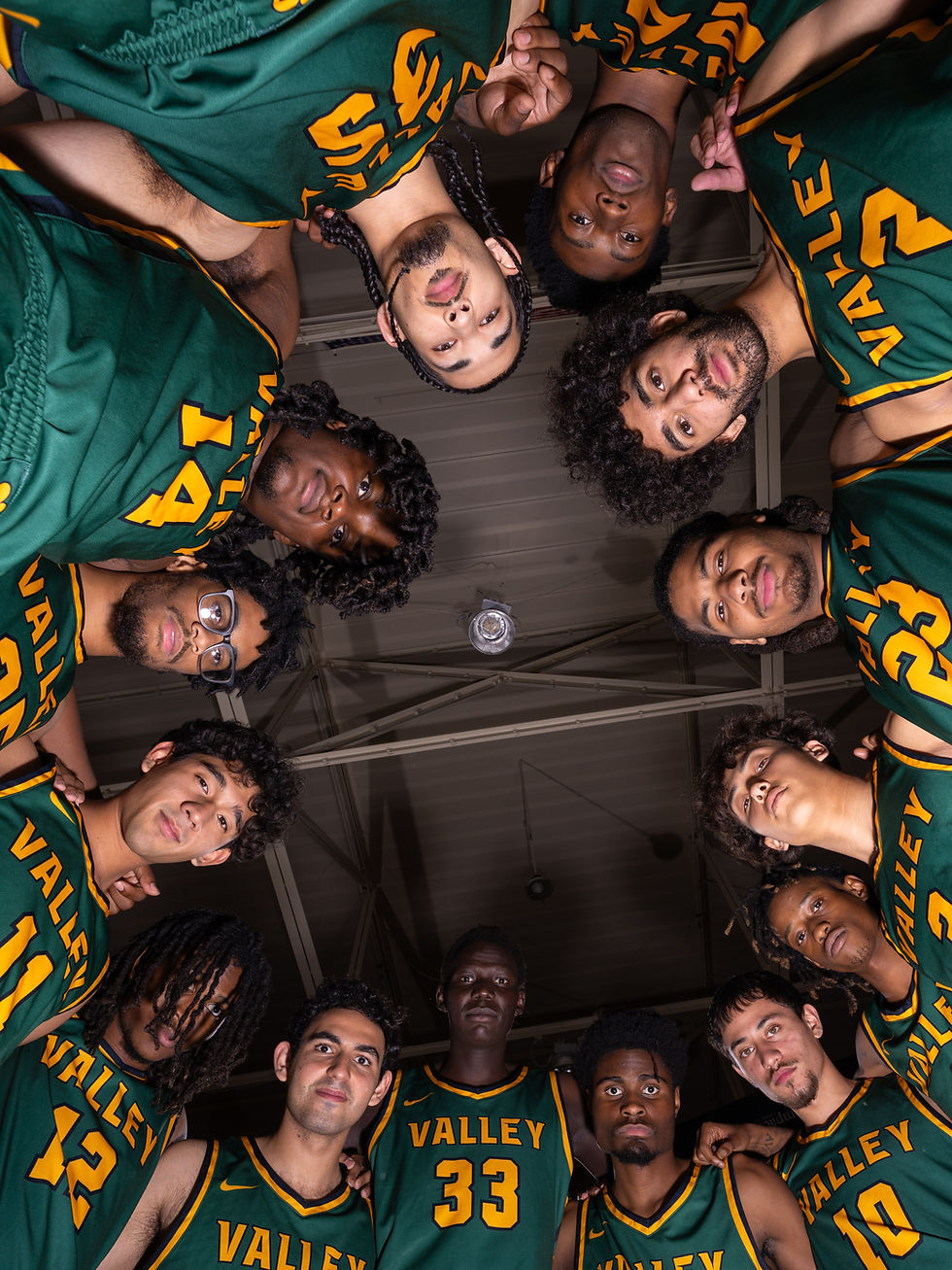Gov. Newsom says: “Show them the money”
- valleyjourno
- Oct 16, 2019
- 3 min read
The state of California recently passed a bill that has the potential to change the landscape of the NCAA and its student athletes.
By Vicente Vitela, Staff Writer
California passed a first of its kind bill last week allowing collegiate athletes to be compensated for the use of their names and images, which could change college sports forever.
California Gov. Gavin Newsom signed a bill that will go into effect in January 2023 that prohibits the National Collegiate Athletic Association (NCAA) from barring a university from competition if its athletes are compensated for the use of their name, image and likeness. Many sports analysts, as well as California state officials, believe that there will be many more states that will implement a similar bill.
“I have deep reverence, deep respect for the NCAA and college athletics,” Gov. Newsom said in a recent Los Angeles Times article. “I just think the system has been perverted, and this is fundamentally about rebalancing things. It’s about equity, it’s about fairness, and it’s about time.”
Initial reaction from the NCAA deemed the decision as “unconstitutional” and NCAA president Mark Emmert said that it would turn “students into employees.” In 2017, the NCAA — a non-profit organization — reported $1.7 billion in revenue and, with the new law set to take place, that amount of revenue could be in jeopardy. The NCAA now battles within itself over the possibility of not letting these teams compete once the bill is set to begin.
“This could be game changing and I think it will make the students want to stay in school more,” said Juan Sanchez, a Monarch athlete.
The NCAA isn’t the only group that is against this new bill. Several of California’s powerful universities lobbied against the measure, including Berkley, Stanford and USC. If these schools are deemed ineligible to compete, then they would not be allowed to compete in the college football playoffs and men’s and women’s tournaments, which can help some universities rake in up to $100 million each year, according to cbssports.com.
The ramifications of such a bill can have an impact that goes beyond the field as it has the potential to give athletes who come from a low income family a way of helping out their families while at the same time completing their education. What this bill could also do is get rid of the “one and done” players who attend a university for one year and then decide to forego their remaining three years of eligibility and education in pursuit of money and a professional career.
On the women’s side, with the exception of the WNBA and the Olympics, a women’s athletic career ends once their four years of eligibility is up. With the new bill, it can make those short four years that much more sweeter. The women have also raked in over $6 million a year, according to businessinsider.com, for the NCAA with softball and basketball. This bill may inspire some soon to be collegiate athletes who are on the fence about division one sports to accept that challenge knowing they can get more than an education during their tenure.
After California passed the bill, many other states began discussing the outline for a similar plan of action. South Carolina, New York and Illinois have already begun to draw up plans and will present them to their respective governors within the next two years. This decision by California can not only rock the foundation of the NCAA, but it can also change the way athletes think when it comes to playing at the collegiate level. As far as the NCAA is concerned, the quicker they stop this from spreading the better, because we all know when a domino falls, others follow.





AV在线看 AV在线看;
自拍流出 自拍流出;
国产视频 国产视频;
日本无码 日本无码;
动漫肉番 动漫肉番;
吃瓜专区 吃瓜专区;
SM调教 SM调教;
ASMR ASMR;
国产探花 国产探花;
强奸乱伦 强奸乱伦;
AV在线看 AV在线看;
自拍流出 自拍流出;
国产视频 国产视频;
日本无码 日本无码;
动漫肉番 动漫肉番;
吃瓜专区 吃瓜专区;
SM调教 SM调教;
ASMR ASMR;
国产探花 国产探花;
强奸乱伦 强奸乱伦;
代发外链 提权重点击找我;
蜘蛛池 蜘蛛池;
谷歌马甲包/ 谷歌马甲包;
谷歌霸屏 谷歌霸屏;
谷歌霸屏 谷歌霸屏
蜘蛛池 蜘蛛池
谷歌快排 谷歌快排
Google外链 Google外链
谷歌留痕 谷歌留痕
Gái Gọi…
Gái Gọi…
Dịch Vụ…
谷歌霸屏 谷歌霸屏
负面删除 负面删除
币圈推广 币圈推广
Google权重提升 Google权重提升
Google外链 Google外链
google留痕 google留痕
代发外链 提权重点击找我;
谷歌蜘蛛池 谷歌蜘蛛池;
Fortune Tiger Fortune Tiger;
Fortune Tiger Slots Fortune…
谷歌权重提升/ 谷歌权重提升;
谷歌seo 谷歌seo;
מכונות ETPU מכונות ETPU;
Машини ETPU Машини ETPU
ETPU-Maschinen ETPU-Maschinen
EPS-машины EPS-машины
ЭПП-машины ЭПП-машины� بي يو
ETPU maşınları ETPU maşınları
ETPUマシン ETPUマシン
ETPU 기계 ETPU 기계
代发外链 提权重点击找我;
谷歌蜘蛛池 谷歌蜘蛛池;
Fortune Tiger Fortune Tiger;
Fortune Tiger Slots Fortune…
谷歌权重提升/ 谷歌权重提升;
谷歌seo 谷歌seo;
מכונות ETPU מכונות ETPU;
Машини ETPU Машини ETPU
ETPU-Maschinen ETPU-Maschinen
EPS-машины EPS-машины
ЭПП-машины ЭПП-машины� بي يو
ETPU maşınları ETPU maşınları
ETPUマシン ETPUマシン
ETPU 기계 ETPU 기계